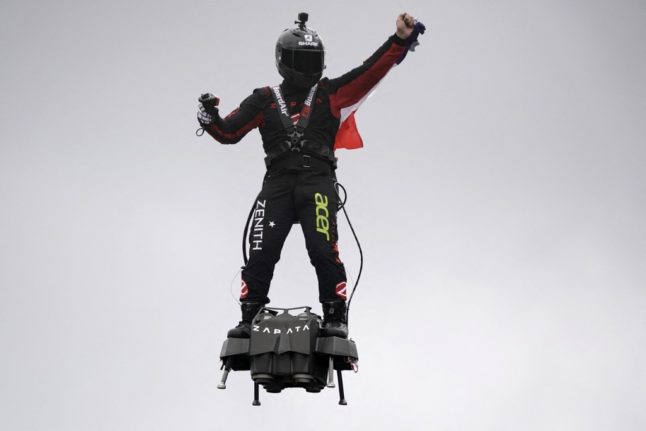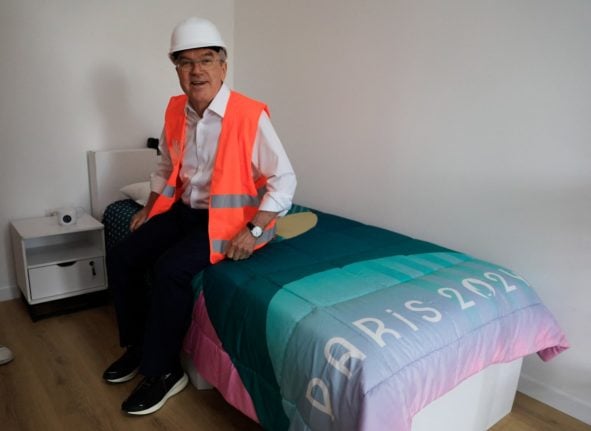After falling some 15 meters into a lake having seemingly lost control of his jetpack, Franky Zapata has been placed under observation at hospital.
Officials told French media that the 40-year-old was conscious and showing “good sensitivity and motor skills”.
The inventor had been giving a demonstration of the ‘flyboard’ in his hometown of Biscarrosse when the crash took place.
Crash impressionnant de @frankyzapata aujourd’hui au meeting aérien de #biscarrosse Heureusement il est tombé dans l’eau et devrait s’en sortir je l’espère sans trop de soucis. #frankyzapata #biscarrosse #crash pic.twitter.com/SjWbGOp74W
— Alex (@Alex170346741) May 28, 2022
Zapata has built a reputation as somewhat of a mad scientist in France.
He shot to fame after zooming over a military parade on his flyboard as part of the 2019 Bastille Day celebrations. Three weeks later, he managed to fly over the English Channel in just 22 minutes using the machine.
The flyboard, sadly, is not commercially available.



 Please whitelist us to continue reading.
Please whitelist us to continue reading.
Member comments